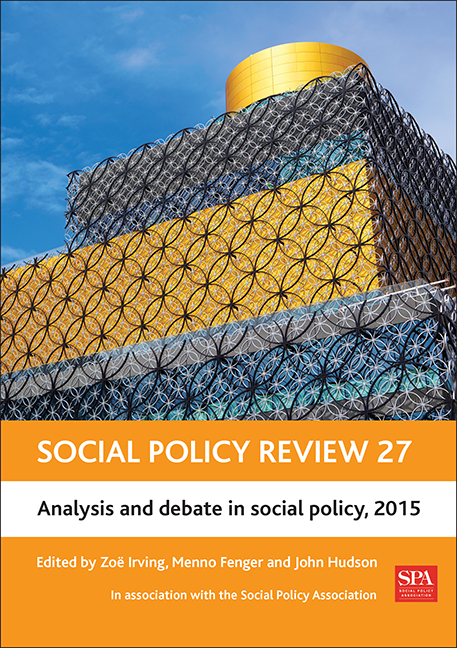Book contents
twelve - The role of regime-type analysis in OECD work on social policy and family
Published online by Cambridge University Press: 08 March 2022
Summary
Introduction
For over two decades, social policy researchers have turned to regime classifications to summarise how countries organise their social protection systems, in order to aid comparisons and to explain findings of a range of empirical analyses. But although work on policy typologies, such as The three worlds of welfare capitalism (Esping-Andersen, 1990), and other more recent influential pieces (see, for example, Korpi and Palme, 1998; Ferrarini, 2006), are favoured citations in the academic literature, questions remain about how this work has fed into discussions among policy-makers. In particular, how has it been used in the discussions of policy transfer between policy-makers in the countries compared?
This chapter explores this question from the perspective of the work of the OECD Social Policy Division, and in particular, the work on child and family policy analysis and evaluation undertaken there.
The main message is that, although welfare regimes have not been used comprehensively, systematically, or indeed consistently in OECD policy discussions, reference to geographic classifications with implicit and sometimes explicit welfare regime messages (such as ‘social democratic regimes of continental Europe’ [OECD, 2005, p 453]) are common. Geographic or linguistic classifications (Anglophones) are used to imply shared historic welfare ‘cultures’ which resonate in present practice. These types of classification references have regularly found their way into descriptive analysis, sometimes in theoretical propositions (see, for example, Considine, 2006), but had not been used in more complex empirical analysis until recently (the type of analysis designed to evaluate policy effects, such as OECD, 2015c, although these are new classifications ‘built’ as part of the analysis). Although there is no obvious justification for the lack of more sophisticated analysis using regime types, it is likely to be due to insufficient data for undertaking macro-level analyses of sufficient detail to supersede available evaluative evidence undertaken at the micro level.
Following an introduction to the work of the OECD Social Policy Division, and how policy is being discussed and debated within it, the remainder of the chapter is structured as follows: the subsequent section focuses on the stream of work on child and family policy and wellbeing, and how regime types have featured in this work; it is followed by a section that introduces new work where regime types have led new empirical analysis built on data availability; and the penultimate section reflects on the potential developments of regime-type analysis for ongoing policy discussions.
- Type
- Chapter
- Information
- Social Policy Review 27 , pp. 247 - 268Publisher: Bristol University PressPrint publication year: 2015



